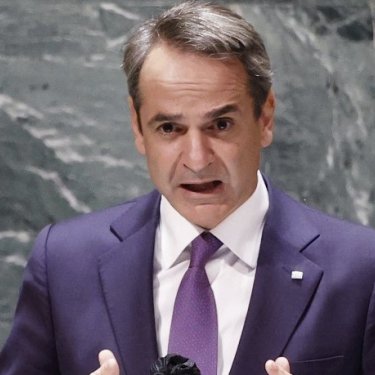RSF asks Greek authorities to speed up Giorgos Karaivaz murder investigation

Tomorrow, six months will have elapsed since Greek crime reporter Giorgos Karaivaz was gunned down outside his Athens home and still no suspect has been identified. Reporters Without Borders (RSF) calls on the Greek authorities to keep their promise to prioritise the case and to make every possible effort to solve it fast for the sake of the security of Greek journalists.
The government again insisted yesterday that the investigation into Giorgos Karaivaz’s murder on 9 April was an “absolute priority” for the Greek police. But the police have yet to identify any suspected perpetrator or instigator, although the killing was carried out in broad daylight in a European capital.
According to reports broadcast last month by Star TV, for which Karaivaz worked, the investigation could continue for “many months” because the authorities have to analyse two lists of suspects, 30 statements and 150 videos.
Shortly after the murder, Prime Minister Kyriákos Mitsotákis called on the police to solve the case quickly, while the Minister for Citizen Protection at the time, Michális Chrysochoidis, promised that “the investigation [will be] accelerated until it achieves its goal.”
But, since then, the police and the Ministry of Citizen Protection have provided little official information about progress in the case. In July, the police acquired evidence from security camera footage about potential perpetrators and instigators but did not reveal their identity or say if any of the persons concerned was under investigation. The ANT1 TV channel said the authorities have gathered more than 100 videos, statements, phone records and other pieces of information.
The Karaivaz family’s lawyer has voiced doubts about the efficacy of the investigation and the desire of the authorities to unmask those behind the journalist’s murder. RSF also expressed its concerns in a letter to the Greek Interior Minister at the start of August, but has yet to receive a reply, despite several follow-up messages.
“We call on the government to keep its promises and to make all possible resources available so that this investigation can be successfully concluded,” said Pavol Szalai, the head of RSF’s European Union and Balkans desk. “We will continue to follow this case. Solving Giorgos Karaivaz’s murder is vital for the security of Greek journalists.”
This case has confirmed the inadequacies of the measures taken by the Greek authorities to protect media personnel. Although journalists are threatened by organised crime, their relations with the authorities are marked by deep mistrust.
When a plan to murder investigative reporter Kostas Vaxevanis was revealed in late April, RSF urged the Greek authorities to adopt measures to restore trust between the media and the police, on whom they depend for their protection.
But the government appeared to be moving in a completely different direction when the ruling New Democracy party proposed legislation that would expand the definition of fake news. The text, criticised by the Greek Publishers Association, plans to extend the offense of spreading fake news to any information likely to raise public concern or undermine public confidence, especially in public health. This would pose a serious threat to journalists’ right to publish information in the public interest.
Greece is ranked 70th out of 180 countries in RSF's 2021 World Press Freedom Index, five places lower than in 2020.



